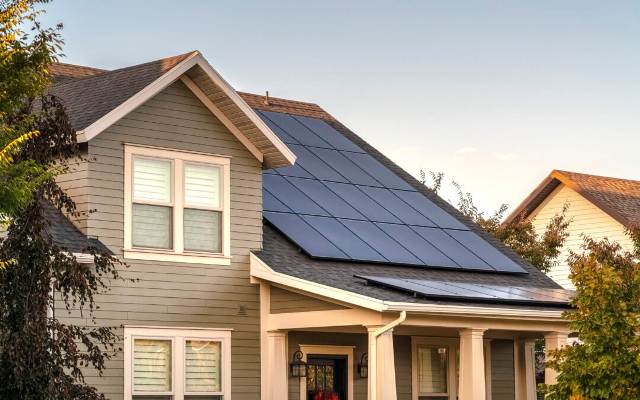Rooftop solar companies are voicing strong opposition to a Republican-backed budget bill that seeks to eliminate the 30 percent federal tax credit (25D credit) for homeowners installing solar systems. The proposed rollback is seen as a severe threat to the residential solar industry, which has expanded ten-fold over the past decade and now employs over 100,000 workers across the United States.
- Financial Impact on Homeowners and Small Installers
The 25D tax credit has been instrumental in making rooftop solar systems more affordable for homeowners. If the credit is removed, the cost of installing a residential solar system would increase by approximately $8,000 to $9,000, according to EnergySage report. This cost increase could significantly deter potential buyers, thereby reducing demand and stalling the industry’s growth trajectory.
For small solar installers whose clients typically pay cash or use loans to finance installations, the loss of the tax credit could be devastating. Jack Ramsey, CEO of Altsys Solar in California, stated that without the credit, he may be forced to cut his nine-person staff in half. This scenario underscores the credit’s importance in sustaining small businesses that rely on residential solar projects.
- Economic Consequences for Small and Medium Installers
The elimination of the tax credit would primarily impact smaller solar companies rather than large players like Sunrun, which dominate the leased solar market and can still access separate tax credits for third-party-owned systems. This creates a disproportionate burden on small businesses, potentially leading to layoffs and business closures.
Charlie Hadlow, president of EnergySage, noted that some installers are already seeking bankruptcy advice, highlighting the urgency of the situation. Rob Kaercher, CEO of Absolute Solar in Michigan, echoed these concerns, emphasizing that the credit is essential for local businesses to continue hiring and growing.
- Potential Economic and Employment Ripple Effects
Rooftop solar currently accounts for more than a third of all solar industry jobs, according to the Interstate Renewable Energy Council. Eliminating the tax credit could therefore lead to widespread job losses in the sector, affecting tens of thousands of workers nationwide.
Additionally, many of the top residential solar markets are located in states that supported former President Donald Trump, such as Texas, Florida, and Arizona. The removal of the subsidy could disproportionately affect these states, potentially creating a political backlash against lawmakers who support the bill.
- Broader Industry and Market Implications
The proposed bill would also undermine long-term industry stability, as companies that had projected growth based on the continuation of the tax credit would now face a more uncertain financial landscape. Furthermore, the unexpected nature of the proposal has eroded trust between the solar industry and policymakers.
Thomas Clark of Northstone Solar in Montana expressed frustration after meeting with Congressional staff earlier this year and being assured that the credit was secure. The sudden reversal has left many in the industry feeling blindsided and vulnerable.
Conclusion
For rooftop solar companies, the 25D tax credit is not just a financial incentive; it is a critical pillar of business stability and growth. The proposed elimination of this subsidy threatens to disrupt the industry by increasing costs for consumers, squeezing small and medium installers, and jeopardizing thousands of jobs. Unless industry stakeholders can successfully lobby for the preservation of the credit, the residential solar market may face significant contraction in the coming years.
GreentechLead.com News Desk

